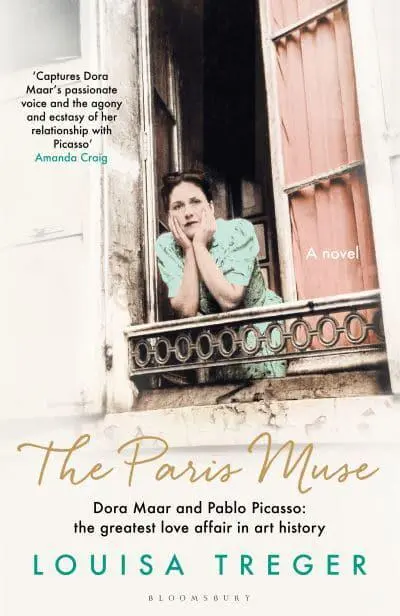The Paris Muse: Louisa Treger talks about Dora Maar.

Louisa Treger is author of three previous novels, The Lodger, The Dragon Lady and Madwoman, all based on true stories about women. Today she talked to Suzi Feay (journalist and reviewer for the FT) about her latest production in this genre, a fictionalized account of the love affair between Picasso and French poet, photographer, and painter Dora Maar.
Maar was a multi-talented woman whose photography was perhaps her greatest achievement, and she was powerfully attracted to Picasso when they met in 1936. She was drawn into the magnetism of his personality and shared his political passions, contributing to some of his most famous works, such as Guernica. She photographed it at every stage and even added some brush-strokes. But by the end of their affair she was destroyed by him. His self-centredness, endless womanising and controlling behaviour eventually drove her to a nervous breakdown.
Picasso depicted her on canvas as his Weeping Woman, a cruel and disturbing image. After their split she had to seek treatment in a psychiatric clinic and her own career never recovered. She had been so subsumed by him, it was as if she had lost her own creative drive.
The story depicts their heady love affair in the Parisian milieu of artists, international Bohemian circles, surviving through the dark days of the Nazi occupation, when Maar suffered more and more from depression.

In taking this material, Treger is handling a theme that is a troubling and contentious. Some feminists have argued that women pour far too much of their energy and emotion into men, and therefore end up achieving less themselves. Dora Maar became Picasso's Muse, rather than a fulfilling her potential as an artist in her own right. Picasso's leftwing indignation about fascist power and brutality did not stop him from behaving like a bit of a brute to women.
One question asked at the end of this talk was whether Dora was weak to stay with Picasso so long despite his callous treatment of her. Treger replied no, as Dora had been attracted to Picasso in the first place because he was dangerous, and she herself had a "dark side".
As far as Treger is concerned, this story provides ideal material for a novel about life at the very epicentre of 20th-century art, thought, and love, the Paris of the inter-war period, the time of Modernism and Existentialism, Sartre, Beauvoir, Camus, Salvador Dali and Coco Chanel, when exiles from communist Russia and fascist Spain met at Les Deux Magots and went on group holidays to the sunny South of France.
If this sounds like your sort of book, then you can buy it at many good bookshops including Blackwells:-
https://blackwells.co.uk/bookshop/search/?src=1389975603&isbn=9781448218011%0D%0A9781526639295
